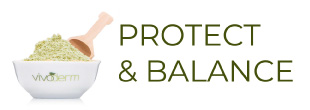Winter Skin Care for Dry Skin
WINTER SKIN CARE during the long winter months means your skin needs protection from cold weather and reduced humidity. Switching to winter-friendly products can keep your skin looking healthy and beautiful. Following are some great tips to keep your skin glowing and healthy all winter long.

DRINK LOTS of WATER and HOT HERBAL TEAS:
Proper hydration and water consumption is very important to keeping our bodies healthy and our skin from cracking and itching in low humidity and heated environments. Be sure to drink at least 64oz of water per day. Replacing plain water with herbal teas is also beneficial for the warming properties and natural herbal benefits such as anti- inflammatory Chamomile or tummy-soothing Peppermint. Try to stay away from caffeinated beverages, as these can actually increase dehydration.
Water gives the skin a radiant, healthy, younger looking complexion, reduces wrinkles and allows skin to maintain its elasticity and suppleness. Keeping skin hydrated from the outside in – such as using lotions and skin moisturizers – is commonly needed more often in cold, dry months like winter.
USE A QUALITY MOISTURIZER
When there is a change of the epidermal (top, exposed layer of skin) barrier and reduced water content in the top layer of skin, moisturizers are a key component of basic skin care. They are used to restore the protective barrier function of the skin, to cover tiny tears or cracks, to provide a soothing protective film and increase the water-content of the epidermis. They may, slow evaporation of the skin’s moisture, thereby maintaining hydration and improving the appearance of dry and aging skin.
Ingredients that aid skin hydration and smoothness are: Aloe Vera, Jojoba oil, Cocoa Butter, Almond Oil, Propylene Glycol, Vitamin E and Hyaluronic Acid.
KEEP HEATING ELEMENTS AT A LOWER TEMPERATURE
Water consumption and moisturizing is not the only factor in keeping skin hydrated and moist. Many external elements can be damaging and drying to the skin, such as too-hot baths or showers and keeping your indoor heat on high temperatures. Also consider using a humidifier in your room or office, since it returns the moisture into the air and help the skin stay hydrated.
CHANGE YOUR SKINCARE ROUTINE
During the winter, cold temperatures can lead to dry and cracked skin. Switch to a mild soap or cream facial cleanser to help keep your skin smooth and soft as opposed to dry and tight after washing. Products that contain natural moisture such as Aloe vera are also excellent, since they are not harsh on dry, winter skin.
Winter air literally sucks moisture from your skin, so moisturizing is a crucial step in winter skin care. Even more important to moisturizing is choosing the right product. Products containing mineral oil, almond oil, or avocado oil work especially well since they keep the skin hydrated without clogging pores.
Moisturizing right after a warm shower will help seal in the water and prevent dry skin.
PROTECT YOUR SKIN FROM UV RAYS
Just because it is cold outside does not mean you should toss your sunscreen tube. Even when you can’t feel the heat, the sun is still emitting harmful UVA and UVB rays, so it still important to protect your skin. Apply a moisturizer that contains an SPF of at least 15, or use products containing zinc oxide, which acts as a natural barrier between your skin and the sun. Surprisingly, the sun’s reflective power on snow can be as high as 80%, so it is possible to be sunburned after spending a day on the ski slopes without sun protection.
Don’t forget to help your lips battle harsh winter conditions with plenty of lip balm as well.
Winter skin care may differ from summer skin care in the type of products used, but the regimen for healthy skin is the same year round: cleanse, moisturize and protect.





